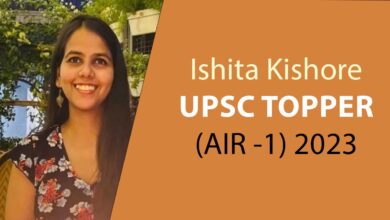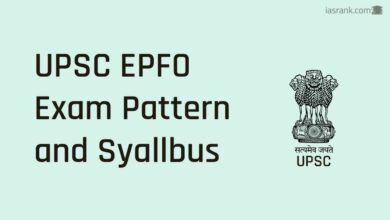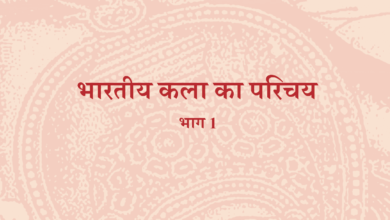The Indian Police Service (IPS) is a prestigious branch of the Indian Civil Services, responsible for maintaining law and order, public safety, and security in the country. IPS officers play a crucial role in ensuring peace and stability in society. This article aims to provide a comprehensive study guide for aspiring IPS officers, covering the UPSC Civil Services Examination, subject-wise study tips, and IPS-specific preparation strategies.
Understanding the UPSC Civil Services Examination
To become an IPS officer, you must clear the UPSC Civil Services Examination, conducted annually by the Union Public Service Commission (UPSC). This Examination consists of three stages: Preliminary Examination, Mains Examination, and Personality Test/Interview. A focused approach and thorough understanding of the UPSC exam syllabus are essential for success.
- Preliminary Examination: This stage comprises two objective-type papers: General Studies Paper-I and General Studies Paper-II (CSAT). The Preliminary Examination aims to assess candidates’ general awareness and aptitude.
- Mains Examination: The Mains Examination consists of nine descriptive-type papers, including four General Studies papers, one Essay paper, two Optional Subject papers, one English Language paper, and one Indian Language paper. The Mains Examination tests candidates’ in-depth knowledge of specific subjects and their ability to express their thoughts coherently.
- Personality Test/Interview: The final stage of the IAS exam is the Personality Test or Interview, where a candidate’s overall personality, including communication skills, decision-making abilities, and mental alertness, is assessed.
Study Plan for Preliminary Examination
The Preliminary Examination syllabus covers a wide range of subjects. To excel in this stage, you must thoroughly understand each subject and stay updated on current affairs.
Syllabus for UPSC IAS/IPS Exam
The syllabus for the Preliminary Examination is divided into two papers:
- General Studies Paper-I: This paper tests candidates’ general awareness and knowledge of various subjects, such as current events, the history of India, Indian and world geography, Indian polity and governance, economic and social development, environmental ecology, biodiversity, climate change, and general science.
- General Studies Paper-II (CSAT): This paper evaluates a candidate’s aptitude and skills, such as comprehension, interpersonal skills, logical reasoning, analytical ability, decision-making, problem-solving, general mental ability, basic numeracy, and data interpretation.
Subject-wise Study Tips:
- Current events: Stay updated on national and international political, economic, and social developments. Regularly read newspapers and magazines and follow reliable online sources.
- History of India: Focus on ancient, medieval, and modern Indian history, emphasizing the Indian National Movement and the freedom struggle. Refer to standard textbooks and make chronological notes to remember important events and personalities.
- Indian and World Geography: Understand the physical, social, economic, and demographic aspects of geography, both in India and the world. Use maps and atlases to enhance your spatial understanding.
- Indian Polity and Governance: Be well-versed in the Constitution of India, the political system, public policy, rights issues, and governance-related matters. Develop a conceptual understanding of the subject and stay updated on recent developments in Indian polity.
- Economic and Social Development: Acquire knowledge about sustainable development, poverty, inclusion, demographics, social sector initiatives, and related issues. Understand basic economic concepts and terminologies to analyze economic policies and their implications.
- Environmental Ecology, Biodiversity, and Climate Change: Learn about environmental ecology, biodiversity, climate change, and their implications on a global and local scale. Focus on international agreements, national policies, and environmental conservation efforts.
- General Science: Familiarize yourself with basic scientific concepts, including everyday applications and recent scientific developments. Focus on the applications of science and technology in daily life and the impact of emerging technologies on society.
- CSAT (Civil Services Aptitude Test): Strengthen your comprehension, logical reasoning, analytical ability, and numerical skills by solving practice questions and attempting mock tests. Develop your time management skills to answer questions efficiently within the given time frame.
Study Plan for Mains Examination
The Mains Examination requires an in-depth understanding of the syllabus and strong analytical and writing skills. Follow a systematic study plan to excel in this stage.
Syllabus Overview of Mains Exam:
The Mains Examination syllabus comprises Compulsory Papers and Optional Papers.
- Compulsory Papers: These are mandatory for all candidates and include Essay, General Studies Paper-I to Paper-IV, English Language Papers, and Indian Language Paper.
- Optional Subject: Candidates must choose one optional subject from the list provided by UPSC. The optional subject consists of two papers.
Compulsory Papers:
- Essay: Practice writing essays on diverse topics to develop the ability to organize ideas, write coherently, and present arguments effectively. Structure your essay logically and include relevant examples and data to support your views.
- General Studies Paper-I to Paper-IV: Cover a wide range of subjects, such as Indian Heritage and Culture, History, Geography, Polity, Governance, Social Justice, International Relations, Technology, Economic Development, Bio-diversity, Environment, Security, and Disaster Management. Focus on understanding concepts, interlinking subjects, and analyzing issues from multiple perspectives.
- English Language Paper: Improve your English grammar, vocabulary, comprehension, and precise writing skills. Practice writing essays, précis, letters, and reports to enhance your writing abilities.
- Indian Language Paper: Choose one of the 22 Eighth Schedule languages and work on your comprehension, grammar, and basic language skills. Practice writing essays, letters, and reports in the chosen language.
Optional Subject:
This optional subject plays a crucial role in determining the overall score of candidates in the Mains examination. The optional subject comprises two papers, each carrying 250 marks, a total of 500 marks to the candidate’s final score.
Choosing the right optional subject is essential for success in the UPSC CSE. Here are some factors to consider when selecting your optional subject:
- Interest and aptitude: Choose a subject that interests you and aligns with your aptitude. It will motivate you to delve deeper into the subject matter and improve your chances of scoring high marks.
- Availability of study material and resources: Ensure sufficient study material and resources for the chosen subject to help you prepare.
- Overlap with General Studies: Selecting an optional subject that has some overlap with the General Studies syllabus can help reduce your preparation time and create a synergy between the two.
- Success rate: Analyze the success rate of the optional subjects in previous years to understand the performance of candidates who have chosen that subject.
Recommended optional subjects for IPS aspirants: Some popular optional subjects for IPS aspirants include Public Administration, Sociology, PSIR, History, and Psychology. However, choose a subject that aligns with your interests and strengths.
Answer writing practice and time management:
Answer writing practice and time management are essential aspects of preparing for the Indian Police Service (IPS) Exam. The Mains examination, in particular, requires candidates to write well-structured, concise, and relevant answers within the given time constraints.
Make answer writing practice a part of your daily routine. Start with writing one answer per day and gradually increase the number. This will help improve your writing speed, develop a structured approach, and enhance your ability to express your thoughts clearly.
Before writing the answer, create a brief outline of the points you want to include. This will help you maintain a logical flow and ensure that you cover all the relevant aspects. Organize your answers using subheadings and bullet points where appropriate
IPS Preparation Tips
A thorough understanding of the roles and responsibilities of IPS officers is essential for success in the UPSC exam and subsequent training. Focus on the following areas:
- Familiarity with the roles and responsibilities of IPS officers: Research the roles and responsibilities of IPS officers in maintaining law and order, public safety, and security. Understand the challenges faced by IPS officers and the qualities required to excel in this role.
- Understanding the Indian Police Service structure: Learn about the hierarchy and structure of the Indian Police Service, including ranks, promotions, and various branches of the police force.
- Knowledge of policing and law enforcement in India: Study the laws, rules, and regulations governing policing and law enforcement in India. Acquire knowledge about the Criminal Procedure Code (CrPC), Indian Penal Code (IPC), and other relevant laws and their application in policing.
- Case studies of successful IPS officers: Read about the experiences and achievements of successful IPS officers to gain insights into the challenges they faced and the strategies they adopted to overcome them. This will help you better understand the profession and inspire you to work harder.
- Importance of physical fitness and mental strength: IPS officers are required to maintain a high level of physical fitness and mental resilience. Engage in regular physical exercise, sports, and stress management activities to build the necessary physical and mental endurance.
Personality Test/Interview Preparation
The Personality Test/Interview assesses a candidate’s overall personality, including communication skills, decision-making abilities, and mental alertness. To excel in this stage:
- Key areas of assessment: Focus on developing your mental alertness, critical thinking, communication skills, leadership qualities, and decision-making abilities.
- Tips for showcasing leadership qualities, decision-making abilities, and mental alertness: Participate in group discussions, debates, and mock interviews to improve your communication skills and confidence. Reflect on real-life experiences where you demonstrated leadership and decision-making skills.
- Discussing personal background, interests, and IPS-related topics: Be prepared to discuss your educational background, work experience, hobbies, and interests, as these topics may be brought up during the interview. Develop a clear understanding of why you want to join the IPS and how your experiences and interests align with the responsibilities of an IPS officer.
Recommended resources and books:
Here is a list of recommended resources and books for the UPSC CSE, which would also be relevant for IPS aspirants:
- Newspapers: Regularly read newspapers like The Hindu, The Indian Express, and The Economic Times to stay updated on current affairs and develop analytical skills.
- Magazines: Read monthly magazines like Yojana, Kurukshetra, and Economic & Political Weekly for in-depth analysis of various topics.
- PIB (Press Information Bureau): Follow the PIB website for official government updates and news.
- Websites: Visit websites like PRS India, IDSA, and RSTV for expert opinions and analyses.
You can also go through important books for UPSC Exam.
Time Management and Consistency
A systematic study plan and consistent efforts are crucial for success in the UPSC exam. Consider the following strategies:
- Creating a study schedule: Develop a study schedule that covers all subjects and allocates sufficient time for revision and practice. Prioritize subjects and topics based on their importance and your strengths and weaknesses.
- Balancing UPSC exam preparation with other commitments: If you are working or pursuing other educational courses, create a balanced schedule that allows you to manage your time and energy effectively.
- Importance of regular revision and self-assessment: Allocate time for regular revision and self-assessment to consolidate your learning and identify areas for improvement. Attempt mock tests and analyze your performance to fine-tune your preparation strategy.
Conclusion
Becoming an IPS officer requires dedication, perseverance, and a systematic approach to UPSC exam preparation. This comprehensive study guide aims to provide you with a clear roadmap to excel in the UPSC exam and embark on a rewarding career as an IPS officer. Stay focused, work hard, and believe in your ability to achieve success.
Remember, the key to success in the UPSC Civil Services Examination lies in consistent efforts, dedication, and a systematic approach to preparation. Keep refining your study plan, stay motivated, and believe in your ability to achieve your dream of becoming an IPS officer.



